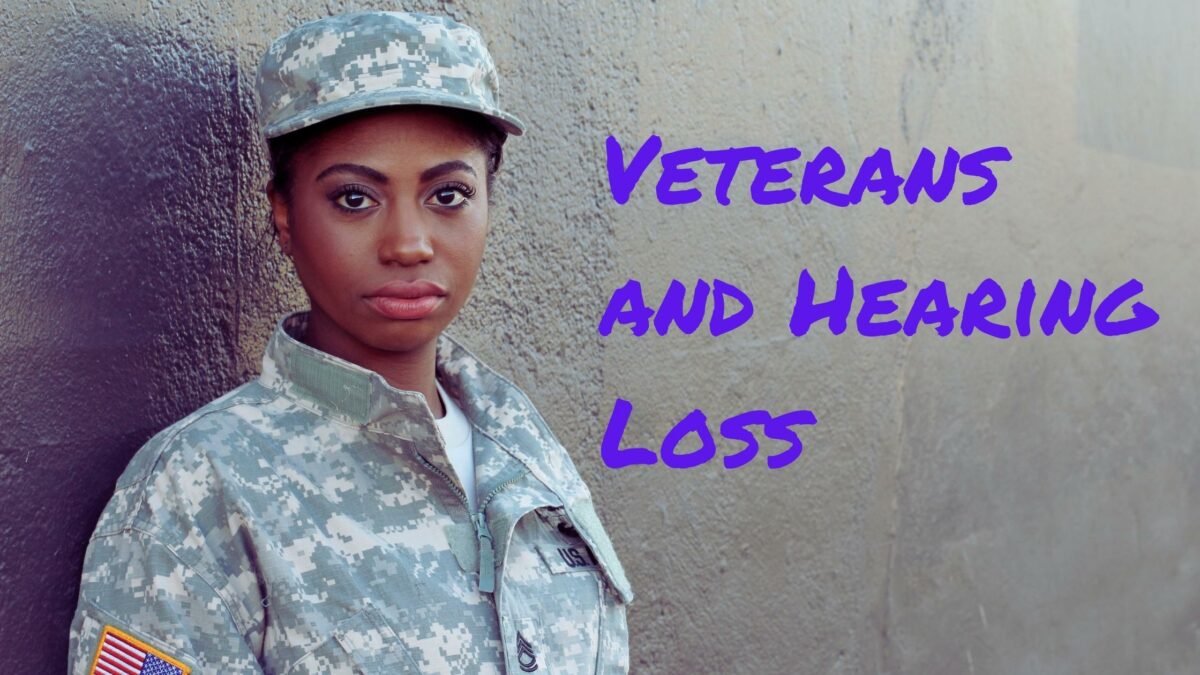Few jobs, careers, and life choices are less selfless or more honorable than those who choose to defend us and our country by joining the military. We care deeply about each and every one of the men and women who have chosen to enlist in the armed forces. We all know that veterans have paid an extremely high price for their service; however, did you know that hearing loss and tinnitus were two of them?
According to the US Department of Veterans Affairs (VA), tinnitus and hearing loss are the number one and number two most commonly reported health conditions amongst our veterans. On top of hearing loss and tinnitus, it is also common for veterans to suffer from Central Auditory Processing Disorder (CAPD). CAPD is usually caused by blast exposure and makes it difficult to understand and process speech.
Noise on the battlefield can be dangerous
Active duty military is frequently stationed in noisy environments such as submarines, tanks, and transport vehicles. They work with heavy machinery, guns, and explosives which produce loud, deafening noises.
Noise-induced hearing loss is frequently gradual, resulting from persistent loud noise exposure. Standing close to an explosion, for example, or another extreme flash of sound can also be instantaneous. Although military troops are regularly exposed to explosives and rifle sounds, hearing loss is not inevitable – it can be avoided as long as protection is worn.
The army, fully aware of the dangers of hearing loss, spends millions on hearing protection and urges its service members to use it. As we will see, however, this protection is not always worn.
Due to combat concerns, it is hard enough to get military personnel to wear earplugs properly. This is why it was so concerning a few years ago when a contractor of earplugs meant to protect US troops knowingly supplied faulty earplugs for use by our soldiers during combat.
Faulty earplugs cause unnecessary hearing loss for veterans
Minnesota-based 3M and Aero Technologies (the company that preceded 3M) both sold earplugs to the US Department of Defense, knowing they were faulty and did not do their job to protect against hearing loss or tinnitus. These earplugs were issued to soldiers stationed in Afghanistan and Iraq for more than a decade between 2003 and 2015. The earplugs were essentially rendered useless because they were too short for proper insertion and were also subject to becoming loose too quickly. 3M was ordered to pay about 9.1 million in claims for providing the faulty equipment.
Frank Robey, the head of the Major Procurement Fraud Unit at the Army’s Criminal Investigative Command, was quoted as saying: “Properly made safety equipment, for use by our soldiers, is vital to our military’s readiness. Our agents will respond robustly to protect the safety of our military.”
A new kind of protection
This lawsuit, as well as a comprehensive study that thoroughly outlined the issues regarding auditory safety for the armed forces, triggered the Department of Defense to develop more advanced hearing protection measures for our soldiers. Even when not faulty, traditionally used earplugs were seen to dampen damaging sounds such as explosions and dampened much needed lower-level sounds such as communication that are paramount to soldier safety and proper execution of missions.
The solution that was developed is called Tactical Communications and Protective Systems (TCAPS). TCAPS is a more advanced hearing protection system that also allows service people to communicate with each other during battle or training. The TCAPS fit comfortably into soldiers’ ears like earbuds and block noises that could cause hearing loss. Simultaneously, the TCAPS also allows servicemen and women to communicate.
Returning from active duty and have questions about your hearing?
If you are a veteran or citizen who has noticed changes in your hearing, don’t hesitate to reach out to our friendly staff today. We look forward to answering any of your questions, scheduling your first hearing screen, and walking with you on your journey to improved hearing.
From our staff to the families of all those who have served and protected us, we thank you for your service and sacrifice! We look forward to helping you reconnect with the sounds of your life!

